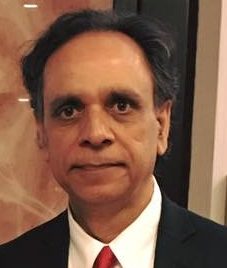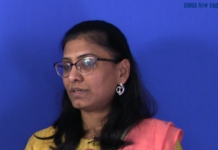By Upendra Mishra
BOSTON—In the opening paragraph of Ashtavakra Gita, King Janak asks sage Ashtavakra: “O Master, tell me how to find detachment, wisdom, and freedom.”
Since the dawn of civilization, human beings have sought freedom, which by the way means one’s ability to act or do things without any hindrance or restraint. Freedom is regarded as one of the most fundamental human rights, and is guaranteed by the constitution of almost every country in the world. Freedom is also the DNA of peace and happiness. Without freedom, there is no peace, no love and no contentment.

Why are we so starved for freedom? My understanding is that soon after we gain consciousness and become aware of our surroundings, we start binding ourselves with relationships, experiences, feelings, emotions, family, relatives, friends and social networks. We start clinging to so many things—even without being aware of them.
By the time we reach adulthood, we have already chained ourselves with so many relationships, and experiences—both good and bad. Moreover, every experience of our life and every interaction get archived in our memory, and unconsciously they start controlling our behavior and actions. In fact, we forget to live in the current moment and start looking at everything from the lenses of our past experiences. By this time, we have also defined ourselves as who or how we are and how everyone else should act and behave or should be.
More we try to change our loved ones or other acquaintances according to our own definition and self-concepts, we strangle ourselves even more. When we don’t succeed in our so-called mission of making the people and the world round us according to our own definition, we try to seek freedom through power, prestige, wealth, fame, social acceptance or whatever external factor we might get hold of. It gives temporary happiness and freedom, and then again we fall back to our self-defined default mode.
We also do all the above to avoid pain or trauma that we might have experienced at some point in our life. As human beings, pain, suffering, joy and happiness are all important part of our life. They should be accepted as they come. But sometimes to avoid pain, we suppress many things. More we suppress, more powerful they become and eventually come back to hurt us more later.
Michael Singer, the author of the New York Times bestseller “The Untethered Soul: The Journey Beyond Yourself,” says that living like this allows for very little spontaneous joy, enthusiasm and excitement for life.
“You will never be free, however, until you get to the point where you are willing to release the initial pain instead of avoiding it. You must learn to transcend the tendency to avoid pain,” says Mr. Singer. He adds: “If you want to be free, you must first accept that there is pain in your heart. You have stored it there. And you have done everything you can think of to keep it there, deep inside, so that you never have to feel it…The moment you are not afraid of the pain, you’ll be able to face all of life’s situations without fear.”
That is not easy, however. But here comes the genius of Patanjali, the codifier of Indian yoga system about 2,000 years ago.
The goal of yoga is to bring our mind and body under the control of our true self, which by nature is pure—innocent just like a child when he/she is born. As we grow older it gets corrupted as we start accumulating experiences. They, in turn, cause turbulence in our mind because based on our own experiences and understandings we start manipulating, strategizing, controlling and playing games not only with others but even with ourselves.
In the process, we forget who we truly are, and start acting like others (again based on our personal experiences.) But once we realize and acknowledge this dilemma, we can start rediscovering our pure nature or reach a state when we truly identify ourselves with our mind. With practice, we become one, pure and all the conflicts and dualities that live in our mind disappear.
Sage Patanjali teaches eight steps to achieve this ultimate goal: “Yoga is the control of the (moral) character of thought.”
- Yama: Ethical standards or sense of integrity or how we conduct ourselves in life.
- Niyama: Self-discipline and spiritual observances.
- Asana: Postures. Since our body is our temple, we must take care of it. A good and healthy body is necessary for mediation and spiritual growth.
- Pranayam: Breath control or gaining mastery over the respiratory process that is linked directly to our mind and emotions.
- Pratyahara: A conscious effort and awareness to withdraw from outside stimuli, step back and look at ourselves or become self-observant.
- Dharana: Concentration. After practicing the first five steps, now we are ready to deal with the distractions of our mind through the practice of concentration. We focus our attention on a single point for an extended period.
- Dhyana: Mediation or uninterrupted flow of concentration or being keenly aware without focus. Mind is quiet and still.
- Samadhi: A state of ecstasy or bliss or an interconnectedness with all things or for some profound connection to the Divine.
Towards the end of his sutras, Patanjali says: “This penetrating knowledge born of comprehension thus allows one quickly transcend all unhelpful contents of experience.” And then he adds: “When the mind’s clarity and luminescence have been brought to the level of the purity of the innermost person, that is liberation.”
What did Ashtavakra advise to Janak?
“Child, if you wish to be free, shun the poison of the senses; seek the nectar of truth, of love and forgiveness, simplicity and happiness,” advised Ashtavakra.
(Mr. Mishra is managing partner of the Waltham, MA-based integrated inbound marketing and PR firm The Mishra Group. He writes about his three passions: marketing, scriptures and gardening.)
















